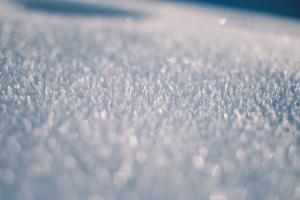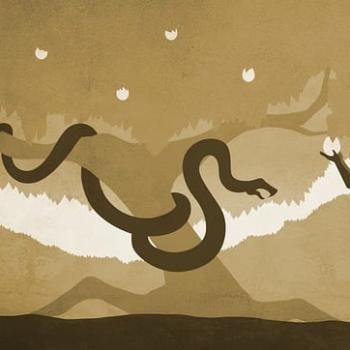
I had expected snow.
It was supposed to snow all night and cover the ground in the morning. Early in the morning when I was lying awake, worrying, I’d heard the salt trucks humming up and down the street at regular intervals. In my mind, they didn’t look like trucks. They looked like drones, or flying saucers, or those little automatic vacuums I see cats riding in videos on Facebook. They skimmed a few inches off the ground, not disturbing a seamless layer of white cotton.
Snow is comforting, to me.
I fell asleep to the gentle drones.
When I woke up, there was no snow– only cold rain splashing on the frost-wilted grass, knocking off the leaves that had been so colorful mere days ago. Now they were brown, the grass was brown, the mud welling up in puddles was brown.
Michael says there are only two seasons in Steubenville, the ice season and the mud season. But as not really as simple as that. We have ice days and mud days, and the months of October, November, March and April are scattershot; you don’t know which you’re going to get.
I resigned myself to a mud day.
I went downstairs and worried over my breakfast. I worried as I tried to write.
Rosie is homeschooled again this year, but we tend to do her seat work in the evening. During the day she plays or colors indoors while I work, and plays outside with her friends. She kept bouncing up and down to look out the window.
“It’s half-snowing and half-raining,” she declared.
I looked as well, but it looked like rain to me.
Michael came in and asked if I would drop off a bag of fruit at The Friendship Room before it spoiled on the countertop, and I said yes. I wasn’t doing any good for the family sitting curled at one end of the sofa, pretending to be a professional writer when the words wouldn’t come. Sometimes a walk downtown makes me eloquent. I took the bag of fruit, and I went to wait for the bus.
Outside, the rain was beading up on my coat– not rain and not hail, but beads of semi-solid water with no color.
The puddles were not frozen over, but they hurt like falling through the ice when I inevitably stepped in one.
Everything was brown and ugly, all the way downtown, and then there was the soggy walk to the Friendship Room a few blocks away.
How many times can I describe downtown Steubenville?
That same walk down Fourth Street, again and again, over the sidewalk and under the dripping eaves. Sometimes it’s hot and sometimes it’s cold. The sun rarely shines, but when it does the pavement steams. Tired people smoke in the shelter of the doorways, and when I sweep by in my eccentric skirts they call me “Ma’am.”
This town used to be the place to be, they say– a steel mill boomtown, right after the end of World War Two. Each one of these crumbling store fronts was open for business. The Grand Theater, which has been “under renovation” by volunteers since I came here twelve years ago, was actually operational and showing films. I guess the Target Sport Shop sold sporting goods instead of being a derelict. There were places to buy groceries without hopping a bus uptown, instead of one lone bakery with a sign boasting that it also sells gallons of milk.
Of course, it wouldn’t have been nice to live there. An elderly Dominican nun who used to teach here once told me that the Order of Preachers had to give the Dominicans in Steubenville special permission to wash their habits twice a week instead of once. Otherwise they wouldn’t stay white. They turned gray– steel gray, from the steel dust that poisoned the air day and night.
Steel gray isn’t the color of Steubenville now. It’s all mud brown and rust red. Rust streaks the pavement like hieroglyphs in a ruin. I don’t mind it very much. Red is a better color than gray. The rust bleeding off of a dead something that used to poison the air until the nuns couldn’t keep their habits pure and clean, bothers me less than the poison itself.
Of course, the poison is still here.
The mills didn’t close because people decided to respect the people and the air. They closed because it was cheaper to poison other people, in faraway places, where they worked for less and the consequences were less apparent to us here in America. And the boomtown died, and the shops closed. The people who stayed became poor– poorer than they’d been, that is. This part of the country was never wealthy. The rust streaked over the sidewalks down into the noxious Ohio River, and Lord knows what will become of us now.
There’s a song that Michael’s grandmother used to sing– “Nothing but the Blood of Jesus.” You’ve likely heard it before. It’s the one with the chorus that goes “O, precious is the flow that make me white as snow.” She wasn’t singing about rust and certainly not nuns’ habits, but somehow the whole thing runs together in my mind– blood that cleanses instead of staining, nuns in white habits washing twice a week, steel befouling the air and rust bleeding on the ground. Snow that’s longed for but not yet seen. Snow that covers the rust– that’s close to a certain type of Protestant idea of redemption, grace covering sin, at least as far as such ideas were explained to me, the cradle Catholic who went to the Irish church back in Columbus. The Catholic idea is much more scandalous than that. Grace doesn’t cover sin, it transforms sinners. It’s not snow covering the sidewalk until the filth doesn’t show. It’s the Spirit coming upon us like the dewfall, and everywhere the Dew touches, we become the Body of Christ.
I dropped off my fruit, and I went to pray in the downtown Adoration chapel until the next bus.
I asked the Lord for a sign, because my faith is weak.
A sign of what, I hardly knew. That He was listening. That my anxiety was lying to me. That things would get better. That the world would live to see another generation, and another after that. That He would forgive us and send His Spirit like the dewfall to make things right.
When I got back outside, the rain had turned to snow.
I’d only been praying for half an hour, but the snow was falling fast.
It already stuck to the bushes and the trees, but by the time I got back to the bus depot it was on the sidewalks, covering the rust.
When I got home, Rosie was outside in her hat and coat throwing snowballs. I couldn’t even see the mud.
By the next morning, the neighborhood was covered from one end to the other in clean white cotton.
(image via Pixabay)













